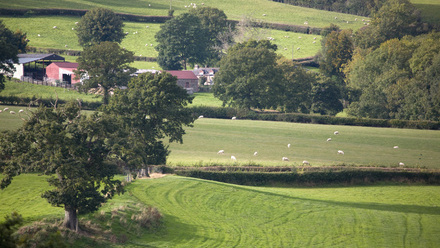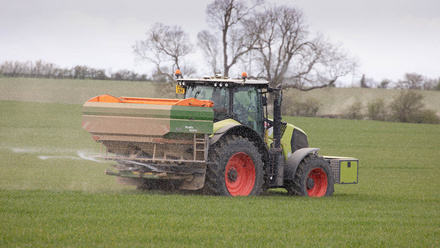APPGSTA 30:50:50 Progress Update
A new report from the All-Party Parliamentary Group on Science and Technology in Agriculture (APPGSTA) has projected that domestic food production in the UK could decline by up to 32% by 2050, or 39% per capita, if current trends continue and no changes are made to farming and land-use policies.
The study, led by former National Farmers’ Union (NFU) chief economist Dr Derrick Wilkinson, was conducted as part of the APPGSTA’s 30:50:50 programme. It suggests that the Government targets for housing, nature restoration, renewable energy, tree planting, and infrastructure development may result in the loss of up to 25% of currently farmed land over the next 25 years, including areas of high-quality arable land.
The report, Feeding Britain Sustainably to 2050, was launched at the Agri-Science Summit in Westminster on 3 November 2025. It outlines the Group’s proposed 30:50:50 mission: increasing agricultural output by 30% by 2050 while reducing the environmental footprint of farming by 50%. The Group recommends embedding this mission across all food, farming, and land-use policies.
APPGSTA Chair George Freeman MP stated that agricultural productivity growth in the UK has slowed, citing fragmented support policies, regulatory inconsistencies, and limited application of scientific research as contributing factors. He noted that current policies may reduce or displace domestic food production and emphasised the need for a coordinated approach to policy development.
The report calls for food security to be given equal consideration alongside environmental objectives such as biodiversity and net zero. It proposes a statutory target of 75% domestic food self-sufficiency by 2050 and recommends the development of a National Farm Data Initiative (NFDI) to support benchmarking and performance monitoring.
Key findings from stakeholder engagement include:
-
Broad support for the 30:50:50 framework as a strategic reference point.
-
Concerns that existing policies may not be sufficient to meet productivity and sustainability goals.
-
Agreement on the importance of science, technology, and innovation in shaping future agricultural policy.
The report also references international approaches, including the the United States Department of Agriculture’s (USDA) Agricultural Innovation Agenda and the European Union’s (EU) Vision for Agriculture and Food, which aim to balance increased food production with environmental sustainability.
Policy recommendations include:
-
Publishing a roadmap for the 30:50:50 mission with regular progress updates.
-
Protecting productive farmland for food production.
-
Enhancing research translation and knowledge exchange.
-
Supporting technology adoption through targeted incentives.
-
Reviewing regulatory frameworks to facilitate innovation.
-
Ensuring trade agreements maintain regulatory autonomy in agricultural innovation.
The APPGSTA report concludes that while tools and technologies are available to support sustainable productivity improvements, policy alignment and clarity on the government’s vision for food security will be essential to guide future investment and decision-making.




